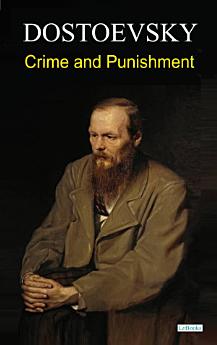Crime and Punishment
Tentang eBook ini
Since its publication, Crime and Punishment has been widely recognized for its intense psychological depth and philosophical inquiry. The novel's exploration of free will, justice, and the struggle between rationalization and remorse has cemented its status as a cornerstone of world literature. Raskolnikov's internal conflict and his interactions with characters such as Sonya Marmeladov and Porfiry Petrovich continue to engage readers, offering profound insights into the human psyche.
The novel's lasting significance lies in its ability to probe the darker recesses of human motivation while also affirming the possibility of redemption. By dissecting the intricate relationship between crime, conscience, and societal structure, Crime and Punishment compels readers to reflect on their own moral convictions and the nature of justice in an imperfect world.
Tentang pengarang
Fyodor Dostoevsky was a Russian novelist and philosopher, celebrated as one of the most profound and influential figures in world literature. Born in Moscow, Dostoevsky explored themes such as morality, free will, faith, and the psychological depth of the human condition. His works often delve into the struggles of individuals grappling with existential dilemmas, social injustices, and the tension between good and evil. Through his novels, Dostoevsky laid the groundwork for existentialism and modern psychology in literature.
Dostoevsky's life was marked by profound personal and political challenges. In 1849, he was arrested for participating in a group advocating for social reform and sentenced to death, though his sentence was commuted to Siberian exile at the last moment. This harrowing experience deeply influenced his philosophical outlook and later works.
Dostoevsky's work is distinguished by its psychological depth and philosophical inquiry. His ability to depict the inner turmoil of his characters and their moral dilemmas influenced writers such as Friedrich Nietzsche, Jean-Paul Sartre, and Albert Camus. His narratives, filled with vivid characters and dramatic tension, laid the foundation for modern psychological fiction.
Dostoevsky's exploration of existential questions, the nature of suffering, and the search for meaning resonates with readers across generations. His portrayal of societal issues, including poverty, crime, and the clash between Westernization and traditional Russian values, provides profound insights into the human experience and the cultural dynamics of his time.







